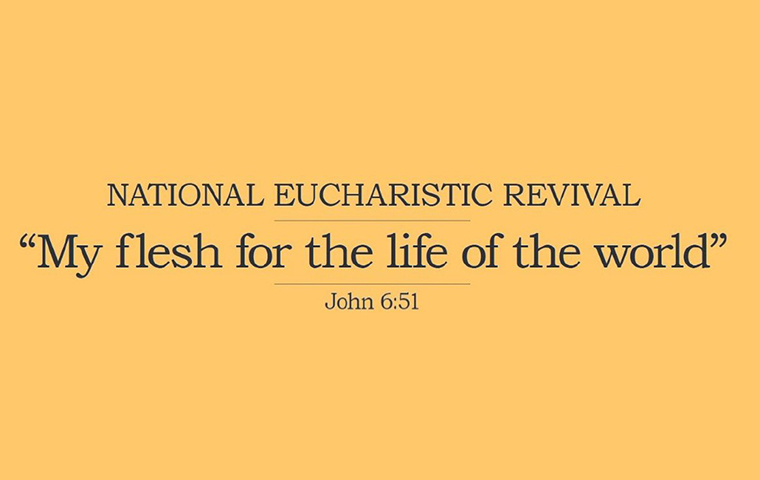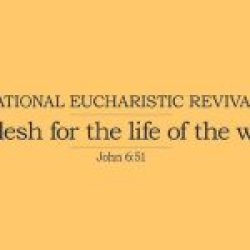Editor’s note: This the second in a series of articles on the Eucharistic Revival that is currently underway nationally. Sister Katie Eiffe is the Vicar for Religious and the Director of Synodal Planning.
The Gospels of Matthew, Mark and Luke portray the Last Supper as a Passover meal, while John’s Gospel does not — though early in John’s Gospel, John the Baptist proclaims, “Behold the Lamb of God, who takes away the sins of the world,” which seems to be a reference to the paschal lamb. (In John’s Gospel, the Last Supper takes place “before the feast of Passover.”)
In a book titled “Making the Eucharist Matter,” by Rev. Frank Andersen, M.S.C.,
(Ave Maria Press, 1999) the author notes that Jesus’ entire life was shaped by the faith and culture of the Hebrew people. He writes, “The Hebrews called themselves a ‘Passover People,’ and the great event of their Exodus from Egypt was the moment in which they became conscious of their calling” (p.14).
Recall that the Jewish Feast of Passover celebrates — and makes present for them — the action of God leading his people out of Egypt, where they had been enslaved for hundreds of years, to a “promised land.” The Hebrews believed that God had acted directly in their history to lead them from the darkness of slavery to the light of freedom, from Egypt to the Promised Land — and in so doing, transformed them from a group of disparate tribes to a nation, called and chosen to witness that presence and action of God in their lives. They had “passed over” to become God’s chosen people.
It was that presence and action of God in their lives which led them to a new understanding of who they were as God’s people, and a new way of living in response to God, which called them to live compassionately, justly and mercifully. “Their nation would reflect in its structures and lifestyle the same justice and mercy that they themselves had experienced in the loving fidelity of the God they had come to know” (p.17). We know that journey as the Exodus, and, again, the celebration of Passover recalls that formational event in their history. That action and presence of God initiated what we know as the Covenant — the relationship with God which formed them as the Chosen People and called them to live in such a way that the God of the Hebrews would be made known in the world.
Jesus grew up immersed in that culture, formed by that sacred story. That call resonated in his heart and guided his life, his teaching and ultimately, his total gift of self, even unto death. Jesus lived his life in fidelity to the covenant God had made with Israel.
It is no mere coincidence, then, that the culminating event of Jesus’ fidelity to the covenant — his offering the gift of his very life for his people (indeed, for all people) — was preceded by the Last Supper, a Passover Meal. The prayers of the Passover ritual and the sharing of bread and wine — familiar elements of the Passover Meal — were deepened by Jesus as he left us the inexhaustible gift of the Eucharist. “This is MY body, given for you. This is MY blood, poured out for you.”
This is what we mean when we speak of the Real Presence of Christ in the Eucharist. Eucharist is the gift of Jesus’ very self to us! Eucharist is GOD’S gift of self to us.






